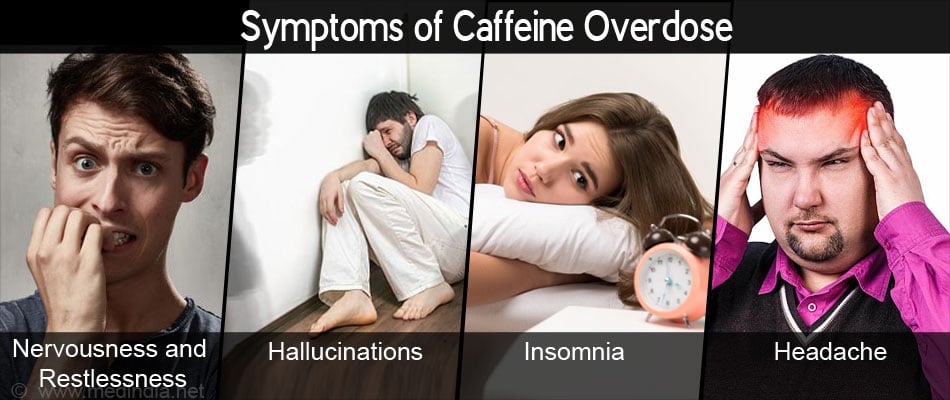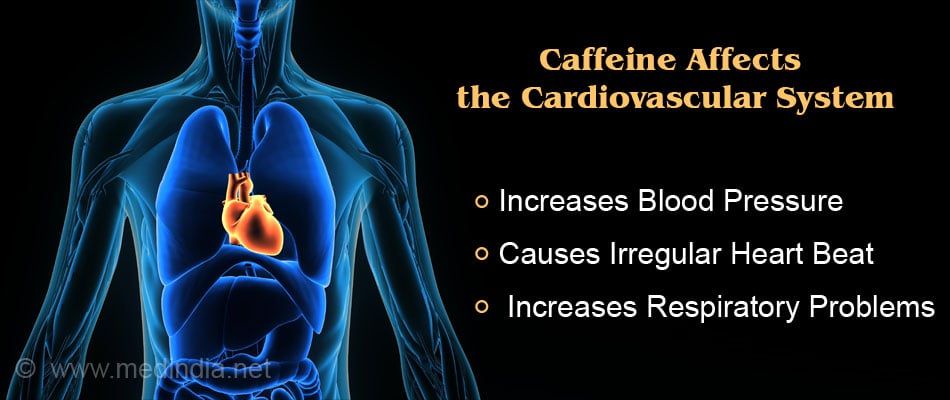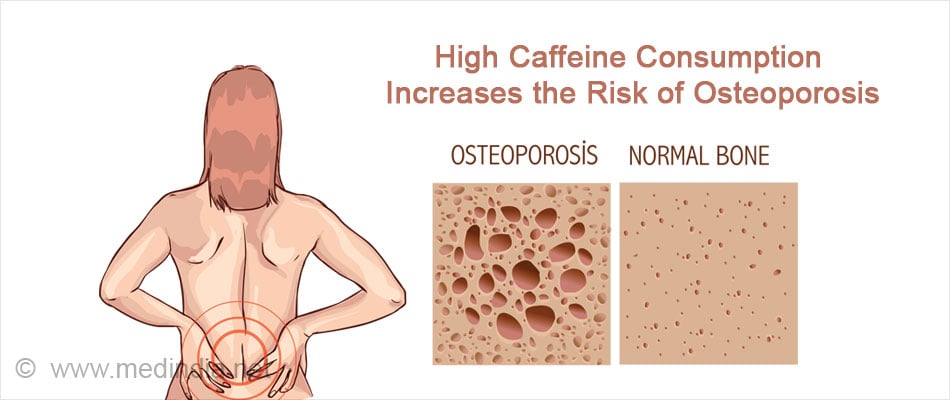- Effects of caffeine on human health. - (https://www.ncbi.nlm.nih.gov/pubmed/12519715)
- Does caffeine cause breast cysts? - (http://www.mayoclinic.org/diseases-conditions/breast-cysts/expert-answers/breast-cysts/faq-20058342)
- Coffee and health: a review of recent human research. - (https://www.ncbi.nlm.nih.gov/pubmed/16507475)
- Caffeine: How much is too much? - (http://www.mayoclinic.org/healthy-lifestyle/nutrition-and-healthy-eating/in-depth/caffeine/art-20045678)
- Genetics of caffeine consumption and responses to caffeine. - (https://www.ncbi.nlm.nih.gov/pubmed/20532872)
What is Caffeine?
Caffeine is a naturally occurring chemical substance usually present in plants, including coffee and tea. Caffeine can also be synthesized artificially, which is added to various types of food, soft drinks, energy drinks, chocolate, as well as medicines.
Technically speaking, from a chemistry standpoint, caffeine belongs to the methylxanthine class. It is a central nervous system (CNS) stimulant and is most widely used throughout the world, largely in the form of coffee. Importantly, there are no legal restrictions on caffeine.
What is Caffeine Overdose?
Caffeine overdose occurs when the level of caffeine exceeds the recommended safety limit for consumption. This amounts to about 400 mg of caffeine per day, which is considered to be safe. This amount is usually obtained from 4 cups of freshly brewed coffee. Anything above this could result in an overdose.
What are the Causes of Caffeine Overdose?
Caffeine overdose can occur from excessive intake of caffeinated beverages, food and certain medications. Too much caffeine can be detrimental to health and can lead to hallucinations and even seizures. Although many people can tolerate excesses of caffeine above the daily recommended limit, some may be more sensitive if they are not accustomed to consumption of caffeine through beverages like coffee.
What are the Symptoms of Caffeine Overdose?
The amount of caffeine that can be tolerated without unpleasant side-effects varies from person-to-person. The casual consumption of coffee usually does not have any effect on adults. However, children should not be allowed to consume coffee, and teenagers should also limit the consumption of caffeine to 100 mg per day i.e. one cup of coffee per day. However, exceeding these limits by consuming coffee more than 5-6 cups daily (500-600 mg) can result in caffeine overdose. Some warning signs and symptoms of caffeine overdose include the following:
- Nervousness, restlessness, jitters, and irritability
- Hallucinations (hearing things or seeing objects that are not there)
- Convulsions
- Insomnia
- Tachycardia (rapid heartbeat)
- Arrhythmia (irregular heartbeat)
- Muscle tremors and twitches
- Anxiety
- Headache
- Chest pain
- Nausea and vomiting
- Frequent urination
- Sweating
- Dizziness
- Breathing difficulty
- Diarrhea

If any of these symptoms appear in the context of consumption of excessive amounts of caffeinated products such as coffee, tea, coke, or energy drinks, there is a strong possibility that caffeine overdose has occurred.
What are the Effects of Caffeine on the Body?
The effect of caffeine on the body varies between individuals. Different people can tolerate different levels of caffeine. This tolerance depends on their age, sex, body mass, existing health conditions, as well as medications that can interact with caffeine. It acts primarily on the brain and heart as a stimulant.
How people respond to different amounts of caffeine depends on their sensitivity. Several genes have been discovered that are associated with habitual coffee consumption, which affect the sensitivity to caffeine. The effects of caffeine on the various organs and systems of the body are briefly discussed below.
- Effect on the Brain: Caffeine primarily acts on the brain by stimulating it to release certain chemicals that causes more alertness and helps to overcome drowsiness and tiredness. Caffeine is used as a medicine to treat drowsiness, but too much can cause insomnia. Headaches can occur from excessive intake of caffeine. It can also occur upon abruptly stopping caffeine intake. Other withdrawal symptoms include anxiety, irritability, drowsiness, and in certain cases, tremors may also occur.
- Effect on the Cardiovascular System: Caffeine increases the blood pressure and can lead to quickening of the heartbeat (tachycardia) or irregular heartbeat (arrhythmia), as well as respiratory problems, particularly in case of high doses. Caffeine should ideally be avoided in people with high blood pressure (hypertension) and cardiac problems.

- Effect on the Digestive System: Caffeine increases acidity, which may reflux into the esophagus (reflux esophagitis) and cause heartburn. Caffeine should especially be avoided if stomach ulcers are present. Withdrawal symptoms include diarrhea, nausea and vomiting.
- Effect on the Excretory System: Caffeine in excess amounts is not stored in the body, but is excreted through the urine after processing by the liver. High levels of caffeine acts as a diuretic, causing excessive urination and thirst.
- Effect on the Reproductive System: Pregnant women should be extra careful about caffeine intake, as it can cross the placental barrier and affect the baby, and increase chances of miscarriage. Excessive caffeine can also make it difficult to conceive as it leads to hormonal imbalance such as reduced levels of circulating estrogen. The issue of occurrence of fibrocystic breast disease in the context of caffeine overdose is still debatable as no conclusive scientific evidence is currently available.
- Effect on Musculoskeletal System: Excess levels of caffeine can cause reduced absorption of calcium and interfere with its metabolism. This can lead to osteoporosis which can make the bones weak and brittle. Caffeine overdose can also cause muscle twitching, while abrupt fall in caffeine levels can cause withdrawal symptoms such as muscle pain.

How do you Diagnose Caffeine Overdose?
If any symptoms of caffeine overdose are noticed, the patient should consult his family physician immediately. The doctor will take a detailed history in order to establish the cause. In severe cases, hospitalization may be required to monitor the blood pressure, temperature, and cardiac parameters. Additionally, tests may be ordered to monitor the levels of the drug in the blood or urine.
How do you Treat Caffeine Overdose?
Mild overdose may be treated at home by consuming large volumes of water (at least one glass for every cup of coffee consumed). Mild exercise can also help.
However, a large overdose must be treated in a hospital setting. This can involve the following measures:
- Stomach wash (gastric lavage), which is useful if the patient has been admitted within 1 hour of intoxication.
- Activated charcoal may also be used to reduce the gastrointestinal (GI) absorption of caffeine.
- In especially severe cases, hemoperfusion or hemodialysis may also be recommended.
- Respiratory support may be provided in case of breathing difficulty.
How do you Prevent Caffeine Overdose?
Awareness about the detrimental effects of caffeine overdose is the key to prevention. Limiting the intake of caffeine to below 300 mg per day is recommended to prevent caffeine overdose. This is especially important in case of people who are sensitive to caffeine, where even smaller doses can cause caffeine intoxication.
Health Tips
- Regulate your caffeine intake: While consuming coffee, limit yourself to 4 cups daily.
- Avoid caffeinated beverages before going to sleep: Don’t consume coffee before going to bed as this can cause disturbed sleep and even insomnia.
- Keep yourself well hydrated: If you get an unpleasant feeling or jitters while consuming caffeinated beverages, stop immediately and consume plenty of water to flush-out the caffeine from your system.











